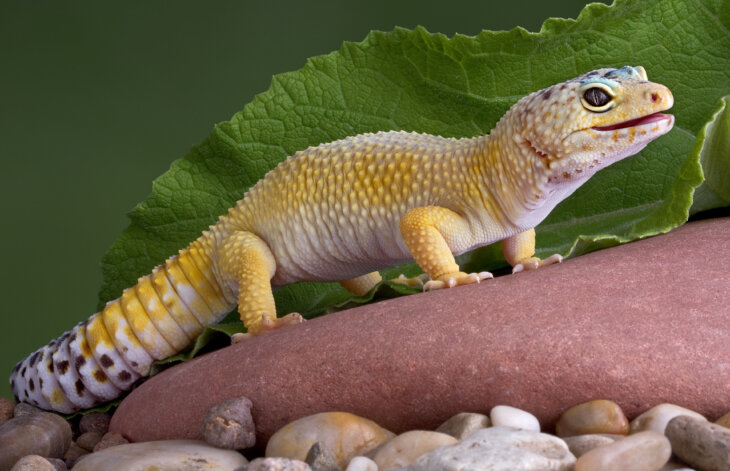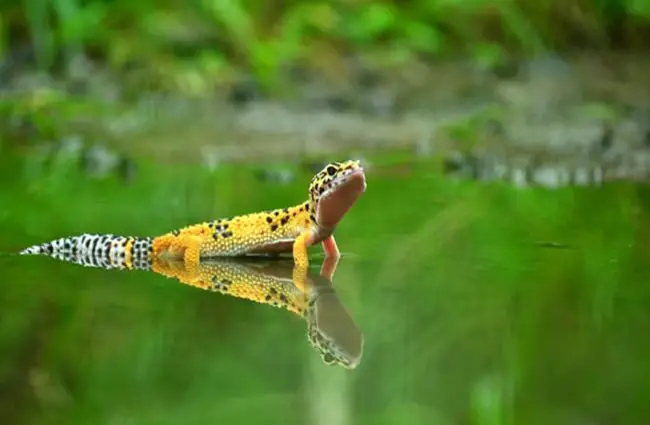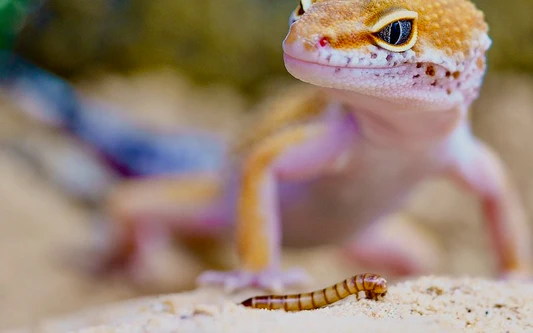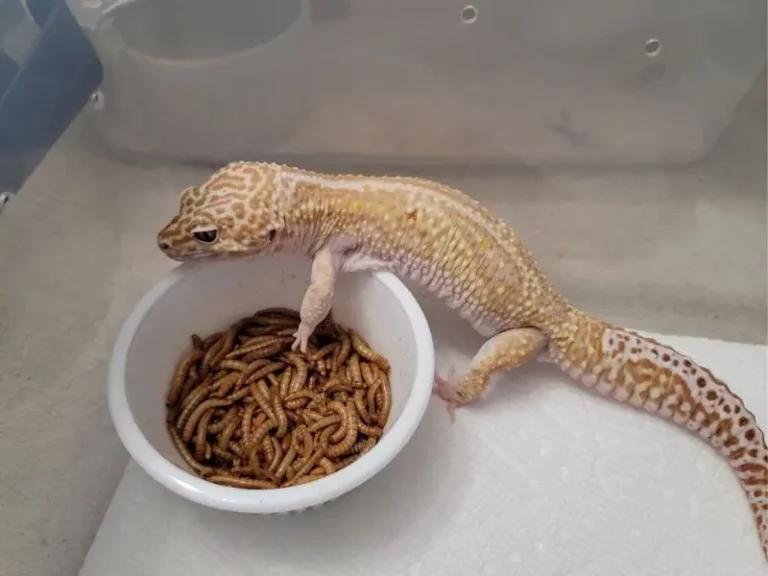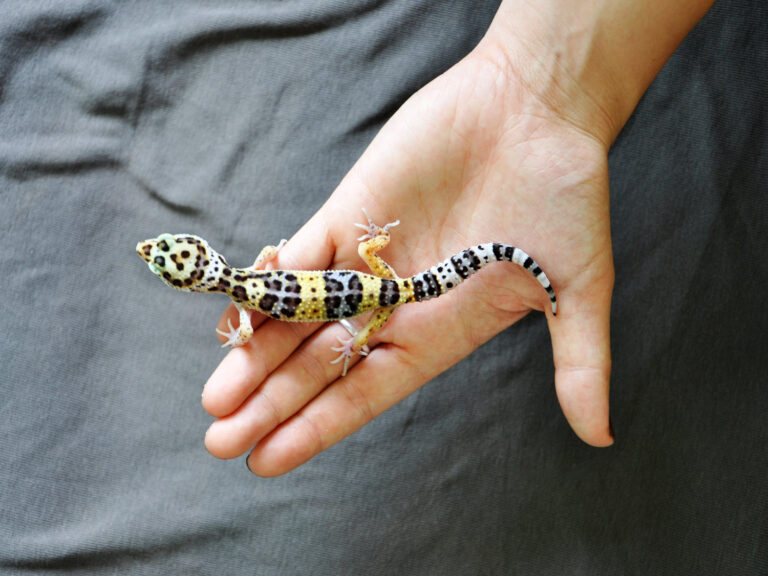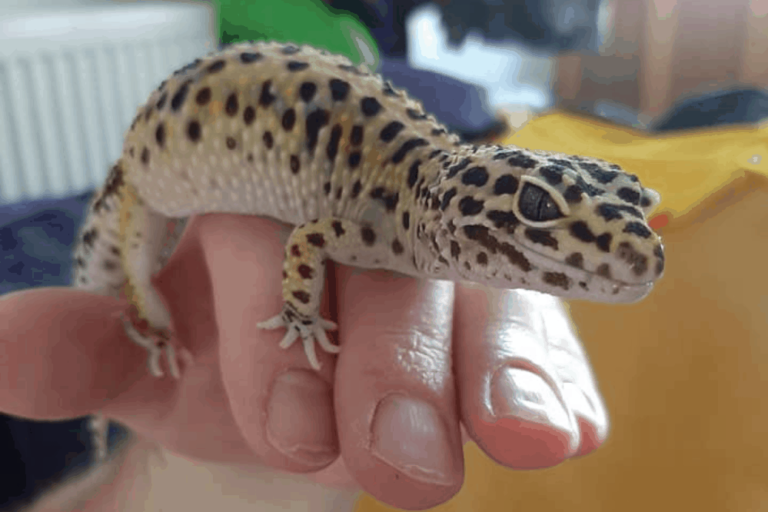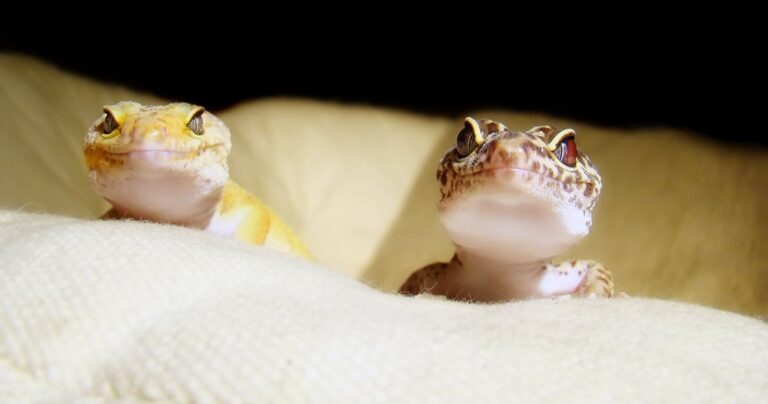Do Leopard Geckos Carry Salmonella?
In the dimly lit corner of my room, a vivacious creature named Leo once thrived, captivating me with its striking patterns and mesmerizing eyes. Leo was no ordinary pet; it was a leopard gecko, a tiny reptilian companion that would become the source of countless captivating memories.
Little did I know that my journey with Leo would lead me down a path of curiosity, exploration, and a burning question that often plagues the minds of reptile enthusiasts and prospective owners alike: do leopard geckos carry salmonella?
As I set out on a mission to uncover the facts, I found some surprising truths
Yes, Leopard geckos can carry Salmonella, and the tricky part is, they can look perfectly healthy even if they have it. So, it’s hard to know for sure if they’re carrying this bacteria or not, making it important to be cautious when handling them.
So, We’ll use straightforward science and evidence to find out, all in the name of keeping both leopard geckos and their human friends safe.
What is Salmonella?
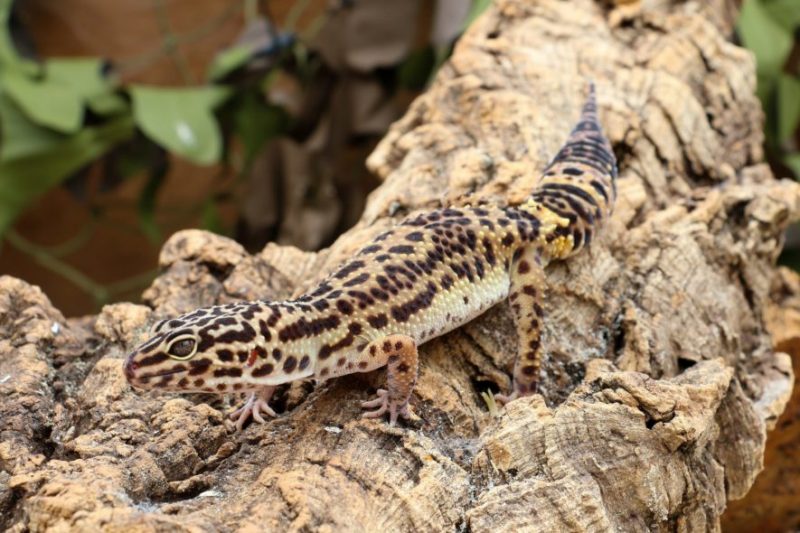
Salmonella is a type of bacteria that can cause food poisoning and various gastrointestinal infections in humans and animals. It’s a widespread pathogen found in many environments, including soil, water, and the digestive tracts of animals, including reptiles, birds, and mammals. In humans, Salmonella infections typically result from consuming contaminated food or water or through direct contact with infected animals. Symptoms of Salmonella infection can include diarrhea, abdominal cramps, fever, and vomiting, and they can range from mild to severe. It’s important to practice proper food handling and hygiene to prevent Salmonella infections, especially when dealing with animals that may carry the bacteria, such as reptiles like leopard geckos.
Can Leopard Geckos Make You Sick?
Yes, leopard geckos can make us sick, but it’s not like catching a cold from them. The concern here is a bacterium called Salmonella. If we don’t take proper cleaning steps, we can get infected.
When Salmonella gets into our bodies from geckos or their surroundings, it causes a sickness called salmonellosis. This leads to stomach cramps, diarrhea, and sometimes vomiting, usually within a few days after contact.
People with weaker immune systems, older adults, and young children can get seriously ill if they catch Salmonella. In some cases, it can even be fatal for them.
To stay safe, always be super careful about cleanliness when dealing with leopard geckos and other reptiles.
Preventing Salmonella from Your Leopard Gecko: Protecting Yourself
- After touching reptiles or anything in their surroundings, wash your hands with soap and warm water. If not possible, use hand sanitizer.
- Always watch over young children while they wash their hands.
- Children under 5 years old shouldn’t handle reptiles, touch their belongings, or be near their living areas, including water sources.
- Keep reptiles away from homes with kids under 5 or individuals with weakened immune systems.
- They shouldn’t be kept in places like daycare centers or preschools with children under 5.
- Don’t touch your mouth after handling them, and don’t eat or drink near them.
- Limit Leo to specific areas, avoiding spots where food or drinks are prepared, served, or stored.
- Clean the habitats outside of the house using disposable gloves. Don’t drain water in sinks used for food or drinking water.
- Don’t use your kitchen sink for bathing or cleaning their enclosures. If you do, clean the sink thoroughly afterward. Optionally, sanitize surfaces with a suitable household disinfectant.
- If disinfectants aren’t available, you can use a solution of about 1 tablespoon of bleach per quart (4 cups) of water. Dispose of used bleach solution when dirty. For sanitizing surfaces, wet them with the solution, wait for 5 minutes (or as per product directions), then rinse with water.
- Don’t use the same bathtub or kiddie pool for them and children.
- Wash any clothing that might have come into contact with them.
What other animals carry Salmonella?
Reptiles: Reptiles like turtles, snakes, lizards, and iguanas are known to carry Salmonella. Leopard geckos, as mentioned earlier, are also a concern.
Amphibians: Amphibians such as frogs, toads, and salamanders.
Birds: Certain birds, particularly parrots.
Poultry: Chickens, ducks, and turkeys
Farm Animals: Livestock like cows, pigs, and goats
Pets with Outdoor Access: Domestic pets like dogs and cats
Wildlife: Wild animals, especially those associated with water sources, can carry Salmonella. Contact with contaminated water or handling such animals can pose a risk.
Rodents: Some rodents, including mice, rats, and hamsters.
How Can Salmonella Spread from Leopard Geckos?
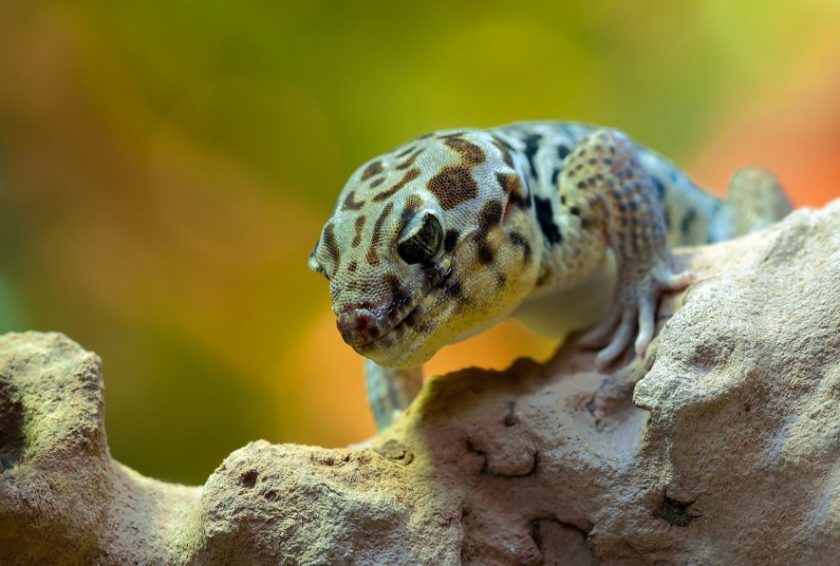
This bacteria can be present in them, even if they seem perfectly healthy. The transmission of can occur through direct or indirect contact with these reptiles or their surroundings.
If you handle your gecko and then touch your mouth without thoroughly washing your hands, you can potentially infect yourself with Salmonella. It’s important to note that even though your gecko may look clean, it could still carry the bacteria.
Further, it can also linger on the surfaces of cages and containers housing your pet. Anything that comes into contact with your pet, such as feeding dishes or decor, should be considered potentially contaminated. Failing to clean your gecko and its habitat properly can increase the risk of Salmonella transmission to humans.
FAQs
How do I know if my gecko has Salmonella?
To find out if your pet has Salmonella, veterinarians can do tests on their feces (stool) or cloaca (the area where they eliminate waste). It’s important to note that a single test might not always detect Salmonella because they may not always be shedding the bacteria. Sometimes, it takes several tests over time to be sure.
Can I get Salmonella from my leopard gecko?
Yes, it is possible to get Salmonella from handling leopard geckos or their environment. Practicing good hygiene is crucial to minimize the risk.
How common is Salmonella in geckos?
Salmonella can be found in various reptiles, including geckos, but the prevalence varies. It’s essential to assume that any reptile might carry it and take precautions.
Are geckos at risk for Salmonella?
No, Geckos, like other reptiles, can carry Salmonella. While they may not get sick from it, humans can be at risk if proper hygiene isn’t observed.
Is it safe to touch a leopard gecko?
Yes, It’s safe to handle leopard geckos if you practice good hygiene. Wash your hands before and after handling to reduce the risk of Salmonella transmission.
Is Salmonella airborne?
No, Salmonella is not typically airborne. It’s primarily transmitted through direct or indirect contact with contaminated surfaces, animals, or their feces.
Final Words
In conclusion, my journey to understand whether leopard geckos carry Salmonella has revealed that while these charming reptiles may indeed carry the bacteria, they often show no signs of illness themselves. This fact highlights the importance of maintaining strict hygiene practices when handling them, cleaning their enclosures, and educating ourselves about responsible pet ownership.
While the risk of contracting it from them is relatively low when proper precautions are taken, it is not a risk to be taken lightly. For the safety of both our reptilian friends and ourselves, let’s continue to navigate the terrariums of knowledge, armed with awareness and a commitment to responsible pet care.

